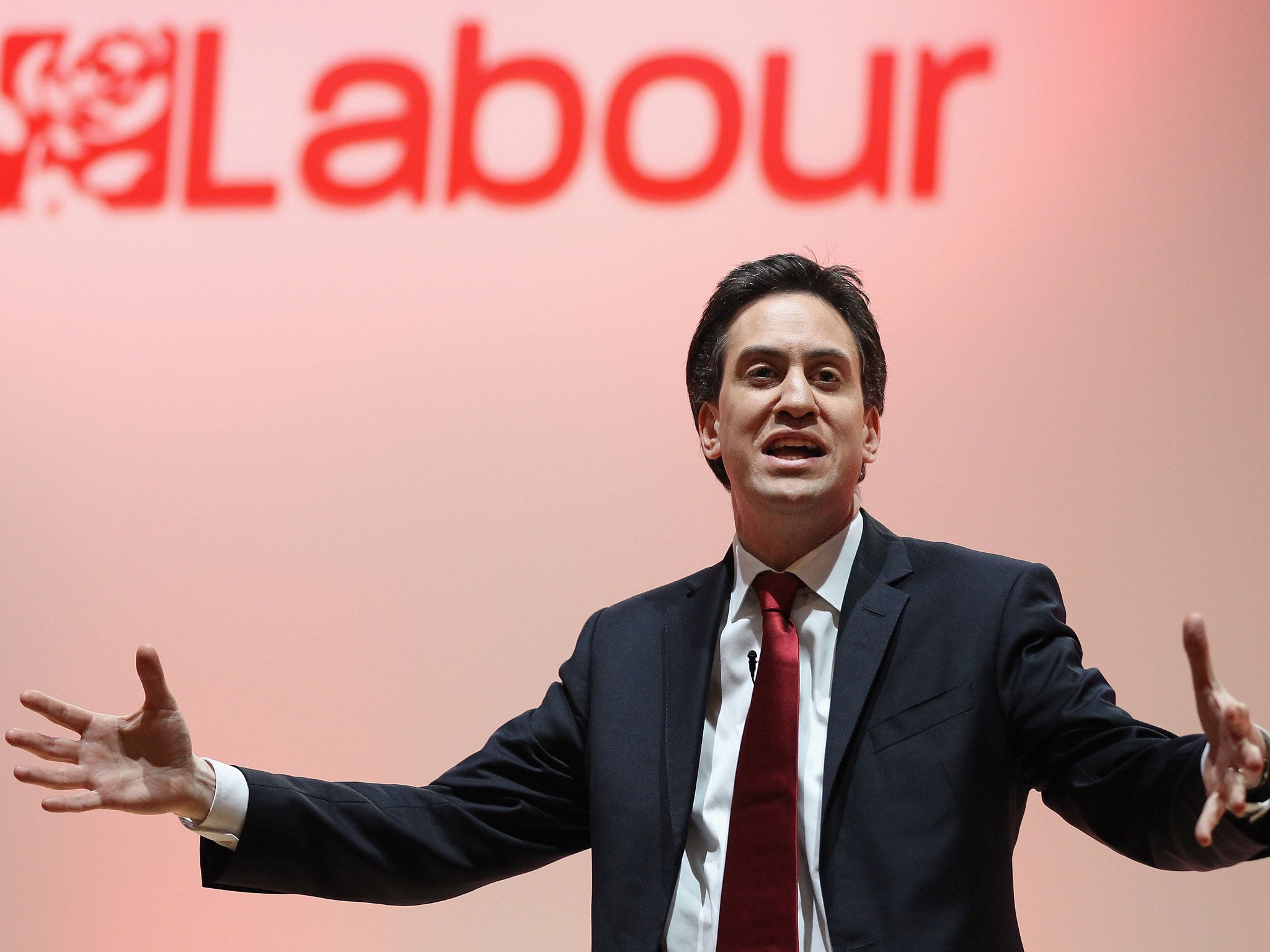Energy rip-off: 'Big Six' firms too close to ministers, says Ed Miliband
Labour plans to rein in energy lobbyists as analysis shows ministers have met with energy giants five times more often than with consumer groups

Lobbyists employed directly by the energy companies should be reined in and their dealings with the Government made more open, Ed Miliband has said.
In an interview with The Independent, the Labour leader accused ministers of being too close to the Big Six energy companies. Analysis reveals that ministers from the Department of Energy and Climate Change have met representatives from the energy giants on 128 occasions since the Coalition was formed in 2010, yet have held talks with the main groups representing energy consumers only 26 times during the same period.
Labour will table amendments to the Lobbying Bill, which returns to the Commons tomorrow, that would force all lobbyists to join the register proposed by the Government, including in-house lobbyists employed by the energy companies. The Bill currently covers professional “third-party” lobbyists who contact ministers and aides directly.
The Opposition will also demand a code of conduct with “real sanctions” and moves to prevent conflicts of interest when people switch between government and lobbying firms. The energy firms regularly “second” staff to Whitehall departments including the Department of Energy and Climate Change (Decc), while some civil servants spend time working in the industry. The Big Six are drawing up a campaign to lobby against Mr Miliband’s pledge to freeze gas and electricity prices for 20 months if Labour wins power.
Mr Miliband said: “The Government’s Lobbying Bill will not capture the big energy lobbyists, who will continue to escape scrutiny. We will bring in a universal register of all professional lobbyists, along with a code of conduct backed by sanctions.”
The Labour leader sees the crackdown on lobbyists as the next stage of his campaign to stand up to the “vested interests” in the energy industry.
Mr Miliband claimed: “We have an energy market that isn’t working for ordinary families and businesses. Yet rather than act, this Tory-led Government is letting energy firms overcharge millions of families who are struggling to pay their ever-rising energy bills.” He added: “With a cost of living crisis gripping Britain, hardworking people need a government that fights for them. Instead we have a Prime Minister who always stands up for a privileged few.”
The Independent’s analysis found that since May 2010, Decc ministers have held talks with Centrica, the owner of British Gas, on 30 occasions; met Scottish Power 26 times; EDF 21; SSE 19; RWE npower 17 and E. on 15. In contrast, the ministers met Consumer Focus 13 times; Which? on 10 occasions; Energy Action twice and held one session with “consumer groups”.
The Bill was long-delayed despite Mr Cameron’s warning before the last election that lobbying was “the next big scandal waiting to happen”. But the measure has won few friends because of its narrow scope.
After warnings by the industry that most lobbyists who meet ministers will be unaffected, Labour’s amendments say that anyone who meets the definition of lobbying, whether working on behalf of a client or an employer, should be required to join the register. Labour would also require lobbyists to declare the approximate value of their activity and to list the individuals involved.
Labour proposes an “enforceable code of conduct”, including a ban on inappropriate financial relationships between lobbyists and MPs or peers. Tough sanctions for breaches of the code of would include preventing the worst offenders from practising by removing them from the register.
The Opposition also wants to prevent conflicts of interests arising from the “revolving door” when ministers or officials join lobbying companies or lobbyists move to a job in government. It says appointments should be scrutinised by a committee, which could attach conditions to prevent those involved using their new role to further other interests.
Decc insisted on Sunday taht its links with the energy companies are “entirely above board”, saying that steps were taken to avoid any conflict of interest and details of meetings were published. A Decc spokesman said: “Keeping the lights on and delivering value to consumers is a vital job and it is perfectly normal for Decc ministers and officials regularly to meet with energy suppliers as well as independent players and environmental and consumer groups to discuss energy issues.”
The Government insists that it has listened to critics of the Bill. Andrew Lansley, the Commons Leader who is responsible for it, has announced changes after charities complained that they could be “gagged” by proposed curbs on political campaigning before elections. But umbrella groups representing these bodies said the amendments do not go far enough.
Join our commenting forum
Join thought-provoking conversations, follow other Independent readers and see their replies
Comments